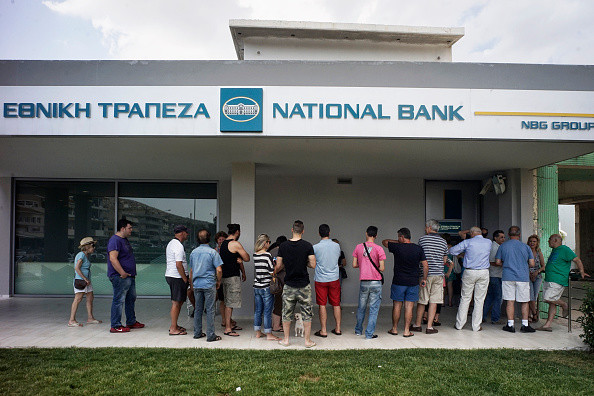William Keegan: Greek crisis risks geopolitical rift bigger than its debt

Café society isn't unique to Greece - here in globally-warmed London, pavement cafés are multiplying and everywhere I go the subjects that keep coming up are the possibilities of Grexit, followed by Brexit.
If events in Greece lead to the chaos people are increasingly concerned about, we may soon encounter another term: Wrexit...
The crisis in Greece inevitably came up yesterday in the depths of the Wiltshire countryside, where I was a panellist at the Chalke Valley History Festival, sponsored by the Daily Mail. Economists Nicholas Crafts, Peter Oppenheimer, and I, were given the thorny topic: Capitalism in Crisis - Where Next?
Chairman Michael Crick affected surprise when, apparently hoping for a controversial discussion, he established immediately that we all agreed communism had its day and capitalism was here to stay, notwithstanding the appalling financial crisis of 2007-08.
But there is endless scope for arguments on how to conduct, indeed to tame, capitalism. It was because the social effect of unbridled capitalism was so devastating in the 19th century that we saw the growth of the trade union movement, left wing-parties, and varying attempts to devise social safety nets.
Now, in addition to technological progress and entrepreneurial flair, two key elements of modern functioning capitalist societies are access to capital markets and an efficient banking system.
What went wrong in the run up to the financial crisis was that the banks, in the pursuit of profit, got involved in all manner of activities that had precious little to do with what we call the real economy and took far too many risks for which we, the taxpayers, bailed them out.

It was also true that policymakers took their eyes off the ball.
I am reminded of the conclusion that the economists John Llewellyn and Stephen Potter came to in an analysis some years ago for the OECD that said while the efficacy of benign economic policies can be disputed, the damage wreaked by bad economic policy can be formidable.
That I fear, is what we are witnessing in the eurozone in general and Greece in particular.
In most cases the jump in public sector deficits was attributable to the banking crisis. But in Greece there was definitely an underlying fiscal crisis. As one economist friend puts it: "For ten years they spent 10% more than they produced."
Imposing austerity on the people of Greece was not the answer - it was a bad policy. Asking them for more austerity last week was insane. The measures proposed were guaranteed to lower domestic demand and raise unemployment even further. No wonder an impasse was reached.
I know the Greek negotiators have found it all too easy to antagonise the creditors from whom they have been seeking help. They have forgotten the lessons of history - the Germans of all people ought to have understood the need for debt forgiveness on a massive scale.
Moreover, the geopolitical significance of Greece is huge. Washington knows this and I get the impression that the Obama administration, and even its Republican opponents, are watching events in Greece with increasing alarm.
And to think that the whole point of the European Union and the eurozone was to bring Europeans together!
William Keegan is a journalist, academic, and the senior economics commentator at The Observer. He has published his latest work – Mr Osborne's Economic Experiment - Austerity 1945-51 and 2010 (published by Searching Finance) – which can be purchased on Amazon.
© Copyright IBTimes 2025. All rights reserved.






















